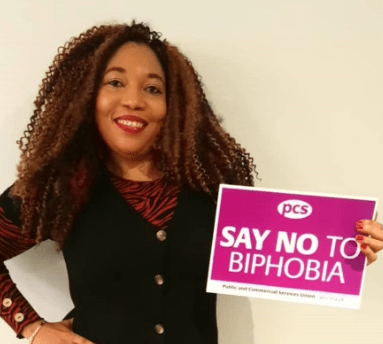Kelsey Phipps, inspired by Sen. Edward Kennedy, carries the torch for LGBT rights in D.C. while Yemisi Ilesanmi fights for human rights in Nigeria
Clear Sailing
Although she’s just 32 years old, Kelsey Phipps was privileged to work for Sen. Edward Kennedy for four years, in his Washington, D.C., office, before he died in 2009. His influence on her was profound and dramatic; he played many roles in her life.
“The senator was my boss, my mentor, my friend, my political hero,” says Phipps. “He was like a grandfather to me.”
Phipps was special assistant and assistant to the chief of staff in the senator’s personal office just before his passing. She spent two years as a policy advisor on disability and was the first female co-chair of the Senate’s LGBT staff caucus. Kennedy, she says, was acutely aware that equality for gay America is no different from any other civil rights issue.
“He not only was the chief sponsor of every LGBT civil rights bill in Congress, but he also followed every issue, pulling clippings on LGBT news from the papers himself,” she recalls.
Today, Phipps is putting the legendary Kennedy tenacity to good use, now that she’s a member of the provisional board of GetEQUAL, a direct-action group that works to achieve full legal and social equality for the gay community. Members of Congress, she says, need to hear LGBT voices loud and clear. Those voices provide the impetus necessary to make legislative changes.
When she’s not stating her case on Capitol Hill, Phipps can be found hitting the books as a Public Interest Law Scholar at Georgetown University. She’ll receive her Doctorate of Jurisprudence this month. She has already signed on as a law clerk with Superior Court Judge Marisa Demeo, a Latina lesbian appointed by President Obama.
“The Republican takeover is going to make progress toward equality a lot more difficult, but we’ll keep fighting,” says Phipps. Phipps said she deals with LGBT civil rights issues using the spirit—and the sailing terminology—she learned from Sen. Kennedy.“ ‘It’s not that hard,’ he used to say. “You just put the sail into the wind and go.’ ”
Queer Rights in Nigeria
She comes from a country where homosexuality is seen—quite literally—as a demonic act, where homosexuals are considered to be “possessed” and are often tortured. In fact, in the 12 northern states of Nigeria, where Islamic Sharia law prevails, adults who are found to have engaged in homosexual intercourse can be stoned to death.
“Many lesbians, bisexuals and gays often marry the opposite sex just to keep their family members happy and take away suspicion from the ever-vigilant community,” says Yemisi Ilesanmi, a 36-year-old bisexual labor union activist and attorney. “However, they often carry out same-sex relationships under the disguise of friendship. It is like an unwritten survival code within the LGBT community in Nigeria.”

Ilesanmi has been fighting for civil rights since 1998, when she was arrested during a peaceful student political protest at the African University Games in Lagos. She was brutalized by the police.
“Even though there is a civilian government in power now, Nigeria is still a growing democracy and still learning to tolerate oppositions,” says Ilesanmi. “I have lost friends and comrades due to the overzealousness of trigger-happy policemen, but—as we say—the struggle continues.”
Currently enrolled in the Master of Laws (LLM) program in Gender, Sexuality and Human Rights at Keele University, in the U.K., Ilesanmi speaks at conferences to stimulate interest in LGBT issues in Africa, noting that the international solidarity shared by trade unions across the globe should also include solidarity for LGBT workers, regardless of their race, gender or geographical location.
She understands the difficulties associated with coming out in a country where homosexuality is a criminal offence and can lead to social and political exclusion and even death.
“As a single mother, an atheist, a bisexual black woman, I am used to being discriminated against, but I do not have to tolerate it or accept it as normal. It is important that we stand up for ourselves and also for others whose voices are silenced.”
